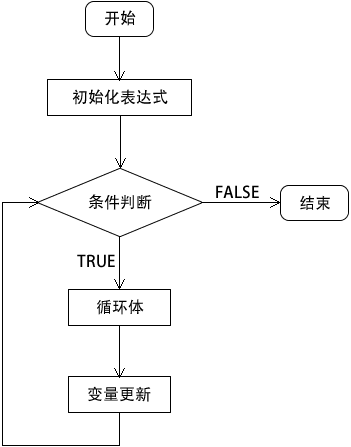
Execution sequence: 1. Execute the "initialization expression"; 2. Execute the "conditional judgment expression". If the value of the expression is true, execute the "loop body", otherwise end the loop; 3. Execute After completing the loop body, execute the "variable update expression"; 4. After the variables are updated, enter the next loop until the condition judgment value is false, ending the loop.

The operating environment of this tutorial: windows7 system, PHP8 version, DELL G3 computer
The for loop is the most complex loop structure in PHP. The for loop statement can perform loop operations according to the known number of loops, and is suitable for situations where the number of execution times is clearly known.
The syntax format of the for loop is as follows:
for (初始化表达式; 条件判断表达式; 变量更新表达式) {
循环体;
}The parameter description is as follows:
Initialization expression: usually Used to declare the initial value of a counter, that is, the value at the beginning of the loop;
Conditional judgment: used to control whether to execute the code in the loop body. If the condition is FALSE, exit the loop immediately ;
Variable update: every time the loop is executed, the counter value is immediately modified;
Loop body: When the condition is judged to be true, it needs to be executed some codes.
The running process of the for loop is:
1) First execute the "initialization expression".
2) Then execute the "conditional judgment expression". If its value is true (non-0), then execute the loop body, otherwise the loop will end.
3) After executing the loop body, execute the "variable update expression" to increase or decrease.
4) Repeat steps 2) and 3) until the value of "expression 2" is false, then end the loop.
In the above steps, 2) and 3) are a loop and will be executed repeatedly. The main function of the for statement is to continuously execute steps 2) and 3).
The execution process is shown in the figure below:

Example: Calculate the factorial of 100 through a for loop
<?php
$sum = 1;
for ($i = 1; $i <= 100; $i++) {
$sum *= $i;
}
echo '100! = '.$sum;
?>Output result:
100! = 9.3326215443944E+157
Recommended learning: "PHP Video Tutorial"
The above is the detailed content of What is the execution order of for loop in PHP. For more information, please follow other related articles on the PHP Chinese website!